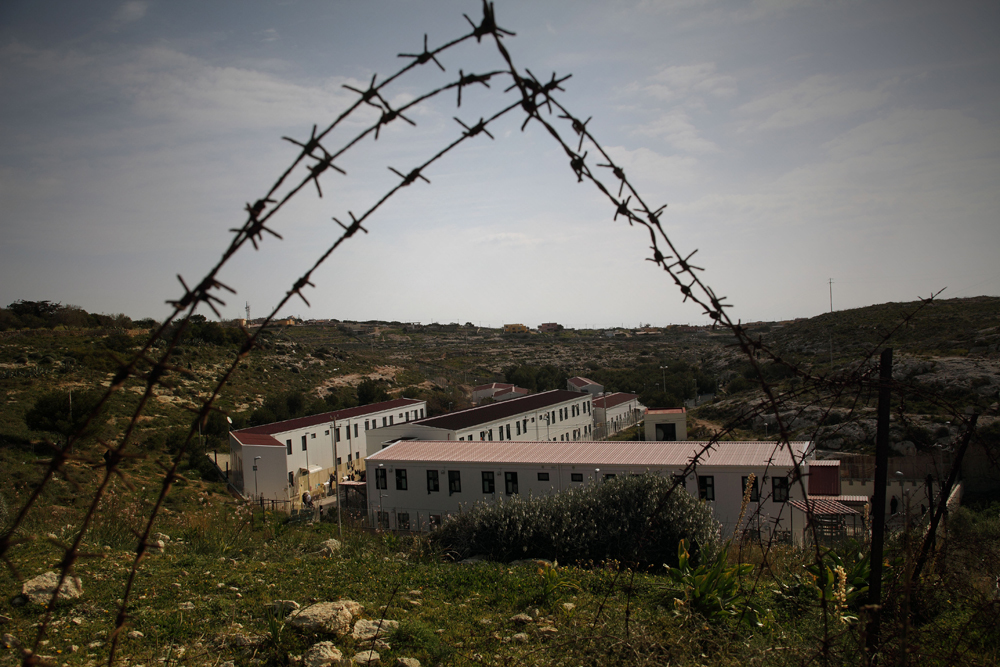
In an important ruling, the European Court of Human Rights (ECtHR) has found that Italy breached Articles 3, 4, and 5 of the European Convention on Human Rights (ECHR) in its treatment of four Tunisian claimants who were detained and deported in October 2017.
In October 2017, four Tunisians attempted to travel to Italy from Tunisia by makeshift boat. When the vessel ran into trouble, they were rescued by an Italian ship, which took them to Lampedusa. They were detained at the Lampedusa (Contrada Imbriacola) Hotspot for ten days. According to the Tunisians, it was “impossible for them to interact with the authorities” during their detention and the material conditions inside the facility were “inhuman and degrading.” Later, on 26 October, the four were taken to the airport along with 40 other individuals, where they were asked to sign documents that they allegedly did not understand, but which they later learnt were refusal-of-entry orders, preventing them from returning to Italy. They were then forcibly removed to Tunisia.
In its ruling on the case, issued on 30 March, the ECtHR found that Italy violated several provisions of the ECHR:
- Article 3 – “No one shall be subjected to torture or to inhuman or degrading treatment or punishment”: Noting the poor material conditions of Lampedusa Hotspot, the ECtHR concluded that “the applicants were subjected to inhuman and degrading treatment during their stay in the Lampedusa hotspot in violation of Article 3 of the Convention.”
- Article 5 – “Everyone has the right to liberty and security of person”: Referring to numerous reports highlighting the fact that Lampedusa Hotspot is “a closed area with bars, gates and metal fences” and that confinement in the facility is not regulated by law or judicial scrutiny, the Court stated that “the limitation on the applicants’ freedom of movement clearly amounted to a deprivation of their personal liberty under Article 5 of the Convention, all the more so if one considers that the maximum duration of their stay in the crisis centre was not defined by any law or regulation.”
- Article 4 – “Collective Expulsion of Aliens is prohibited”: Acknowledging that Italy did not individually assess the claimants’ situations, the short time-lapse between their signing the refusal-of-entry orders and their removal, and the fact that they allegedly did not understand what they were signing, the Court found that “Those decisions thus constituted a collective expulsion of aliens within the meaning of Article 4 of Protocol No. 4 to the Convention and there has therefore also been a violation of that provision in the present case.”
Italy’s “Hotspot Approach”
In 2015, in order to manage Europe’s refugee “crisis,” the European Agenda on Migration introduced the “hotspot approach” for frontline Member States facing migratory pressure (Italy and Greece). The model was developed to ensure swift identification of migrants and asylum seekers arriving in Europe, and facilities were designed to hold people for a short period of time at key points of arrival. However, as the Global Detention Project highlighted in a joint 2019 report with several other European NGOs, people are commonly de-facto detained in Italy’s hotspots for periods far exceeding 48 hours.
According to numerous reports, certain nationalities are also more likely to face lengthy detention in Italy’s Hotspots. In a 2023 article, researcher Roberto Calarco found that Tunisians are more likely to be held in hotspots for a variable period of time than other nationalities. “In Pozzallo and Messina, while migrants could usually exit from the hotspot centre after the completion of identification and fingerprinting procedures, Tunisian citizens were often obliged to stay inside.”
As Italy considers Tunisia a “safe country,” most Tunisians are denied access to asylum procedures, and instead face detention and accelerated deportation procedures.


